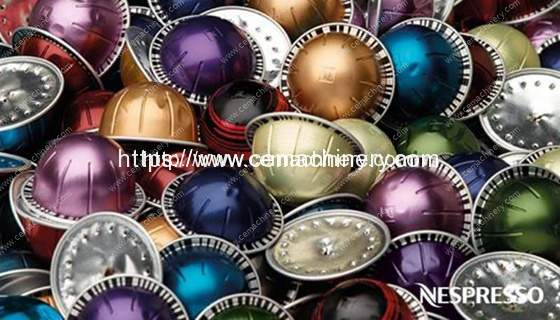Nestlé Ups Its Sustainability Commitment One Coffee Capsule at a Time

Nestlé has announced plans to spend $550 million by 2020 to improve the environmental and social impact of Europe’s biggest single-serve coffee brand, Nespresso.
The investment “includes securing access to the one to two percent of
coffee produce in the world that meets our strict quality and taste
standards,” CEO Jean-Marc Duvoisin told Bloomberg. “This approach also allows us to innovate thanks to the direct relationships we build with farmers.”
The “Positive Cup” will see that the brand sources 100 percent of its Nespresso Grand Cru coffees sustainably and includes 15 million francs to assist farmers in
Ethiopia, Kenya and South Sudan, as well as an increase in recycling of
Nespresso capsules and reduction of the company’s carbon footprint by 10
percent en route to becoming carbon-neutral by planting trees to
compensate.
The plan builds on the brand’s AAA Program that it launched in 2003
with the Rainforest Alliance “to protect the future of the highest
quality coffees and secure the livelihoods of the farmers that grow
them.”
In search of a hook to gain market share against rival Keurig, Nespresso also said it will amp up the collection and recycling of its used aluminum capsules, which have often been a cause for
concern among single-serve coffee brands like K-Cup and Nespresso.
As CSR and sustainability gain traction among conscious consumers and
business leaders, Nespresso is leveraging its earned loyalty through
its Nespresso Club. In China, for example, it offers members-only
events, product launches and coffee classes as well as delivery service
within 24 hours from its two stores in Hong Kong, which also collect
used capsules for recycling.
“We see coffee as much a lifestyle beverage as it is a functional one and that is how we position the Nespresso brand,” said Roger Staeheli, country manager for Hong Kong and Macau. “The growth in
popularity of global coffee chains in Hong Kong suggests that the Hong
Kong market is more appreciative of social coffee drinking, expanding on
the traditional social tea drinking culture. While they appreciate
high-quality coffee, they are also seeking a complete and ultimate
coffee experience— they want to have an ‘exclusive’, indulgent and
personal experience.”
Nestlé’s Nescafe brand has also launched a similar capsule recycling
program for its Dolce Gusto single-serve products in New Zealand in partnership with upcycler TerraCycle. The partnership will utilize TerraCycle’s
“Brigade” recycling effort and will let participants earn two cents per
capsule collected to donate to a charity of their choice.
In a further effort to open the initiatives to fresh inspiration from
the next generation of coffee consumers, Nespresso’s Sustainability MBA
Challenge 2014 challenges students worldwide in 70 MBA programs to
develop ideas for its Creating Shared Value Strategy.
The challenge, which is organized and managed by Latin America’s
leading business school INCAE and the Sustainable Markets Intelligence
Centre (CIMS), sends its winners on a week-long trip to Costa Rica to
visit coffee farms, mills and meet stakeholders in the coffee value
chain.
And in other news, Nestlé announced this week it’s working with Coca-Cola and Tesco in Europe on
collaborative R&D into flexible packaging to further its recycling
goals.

